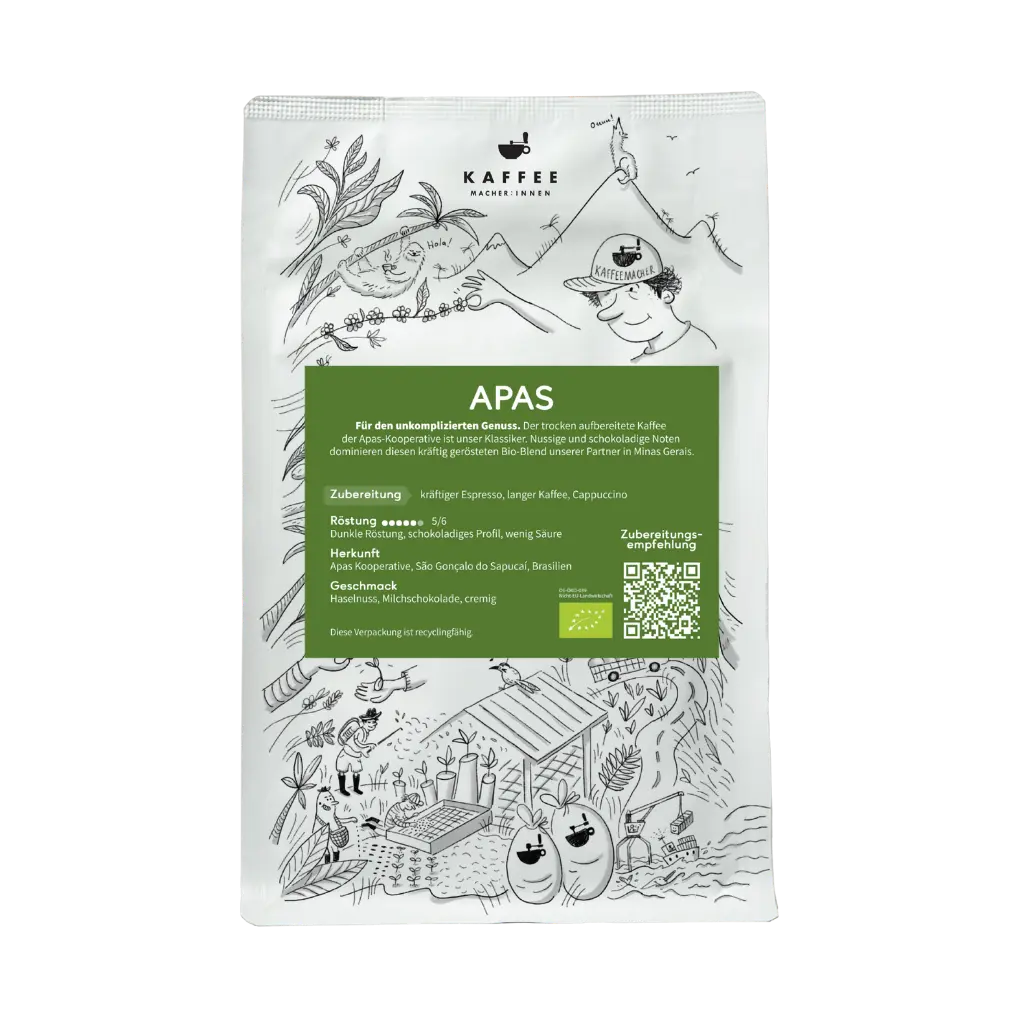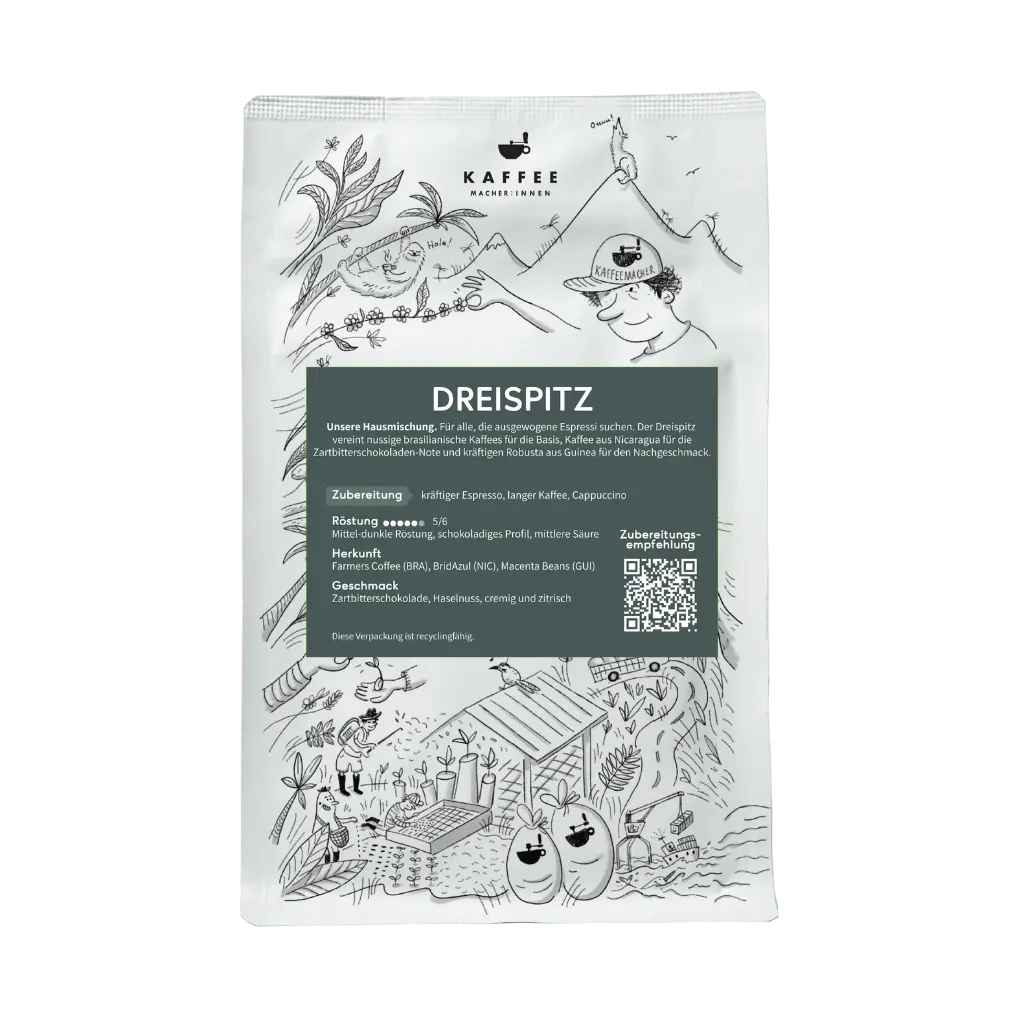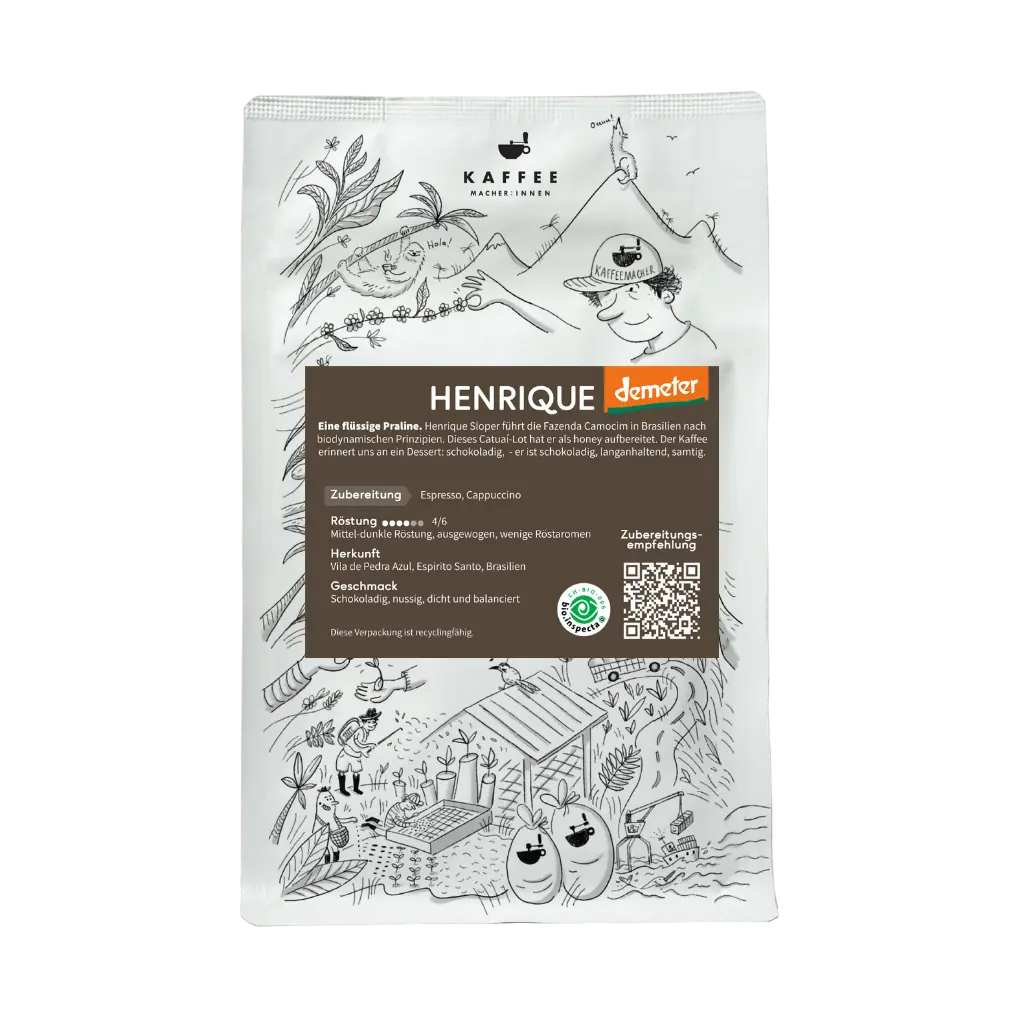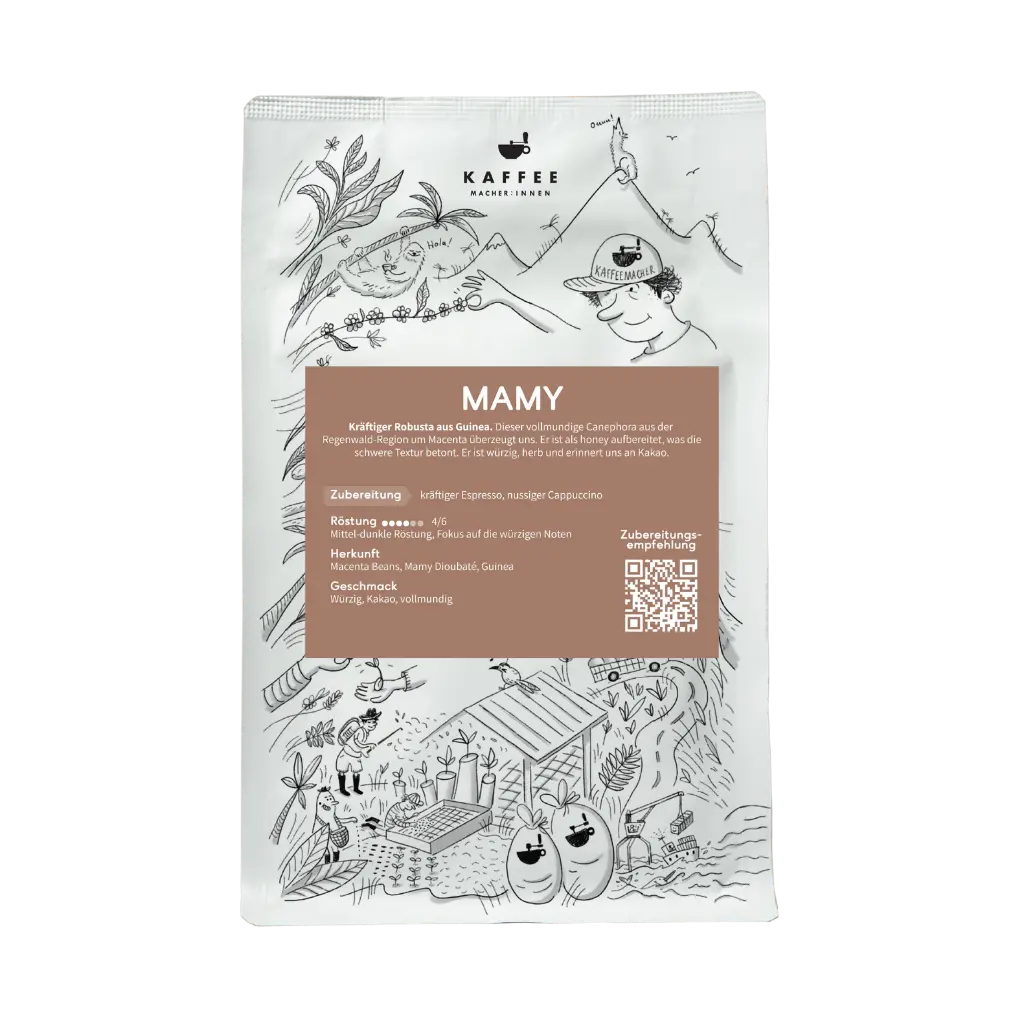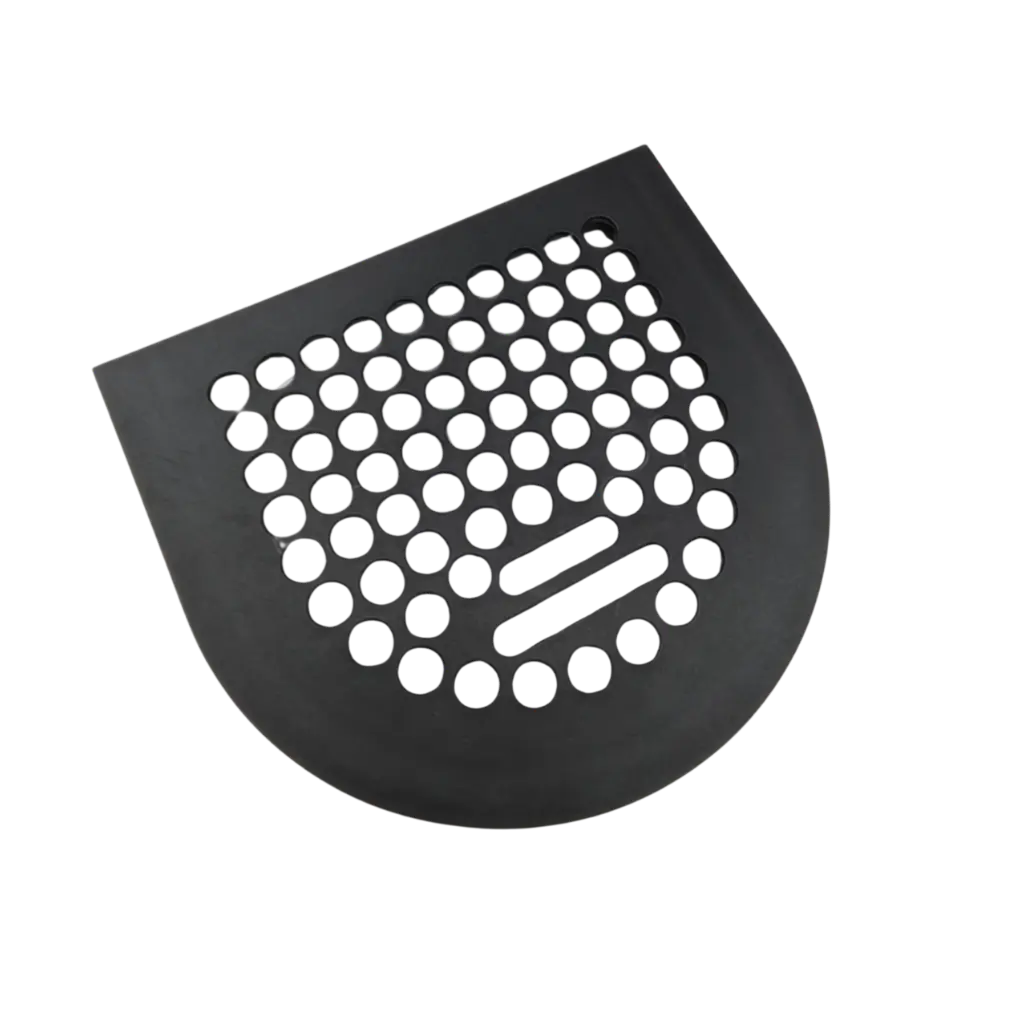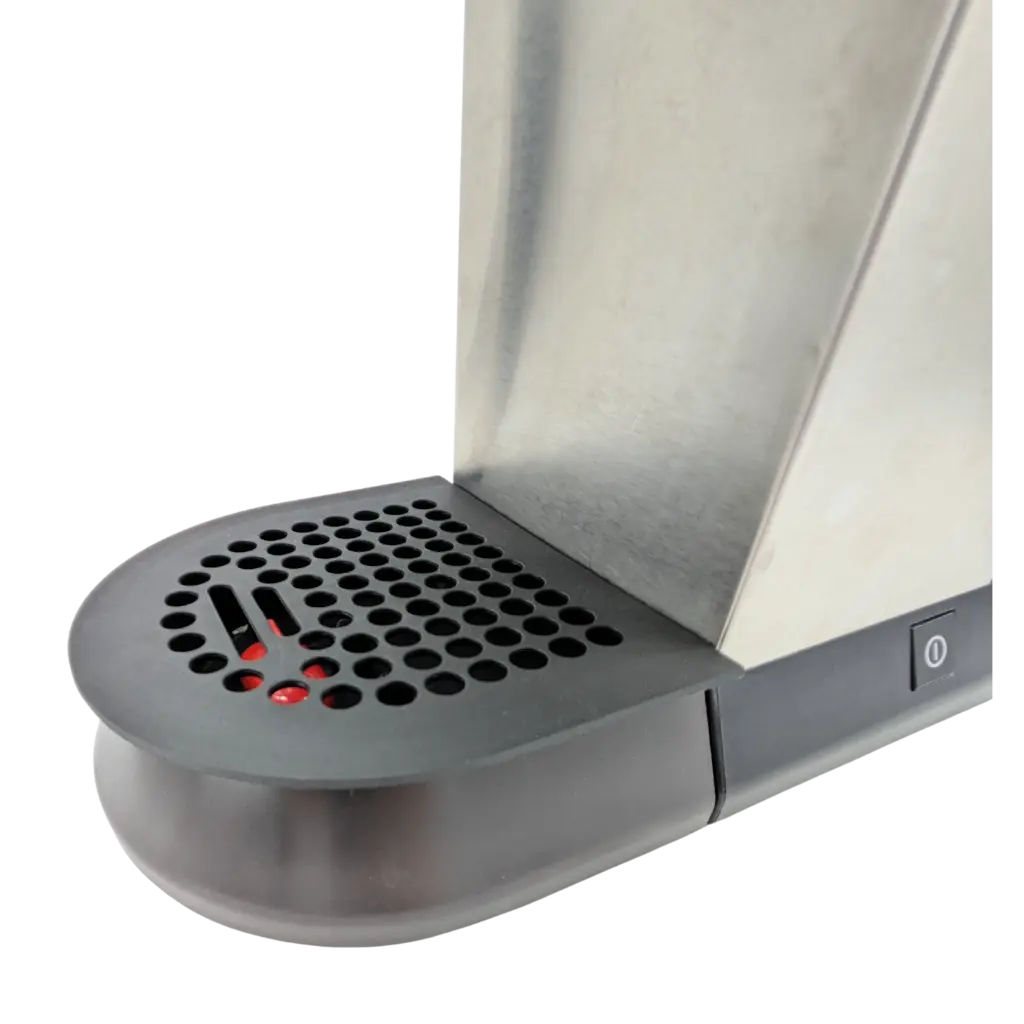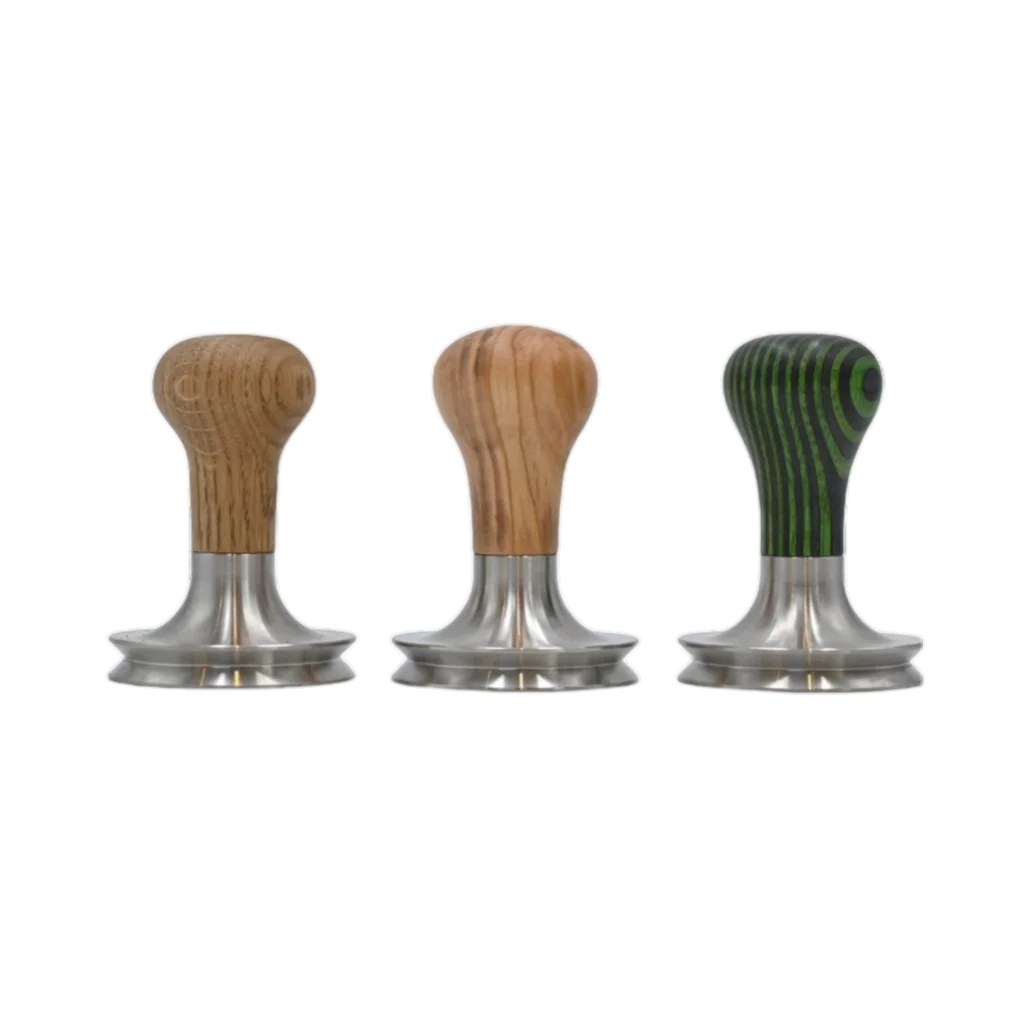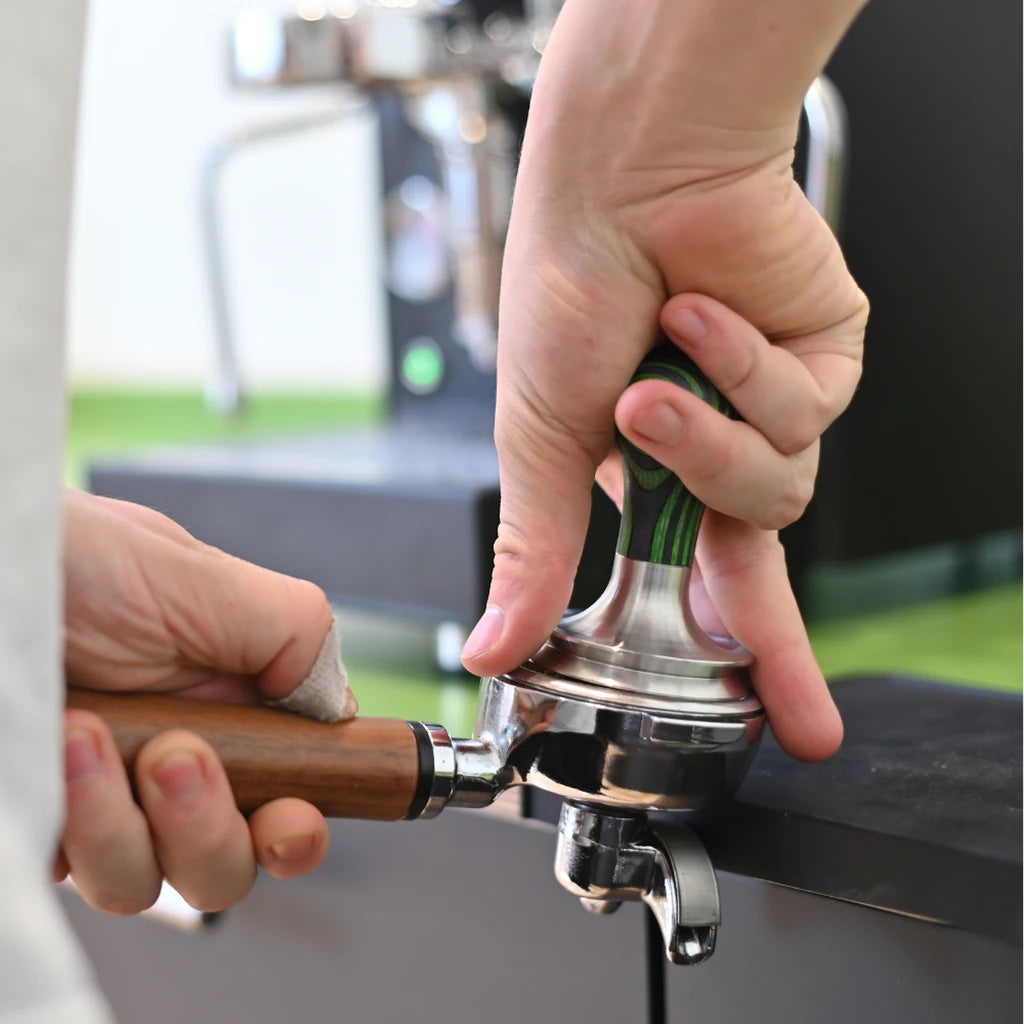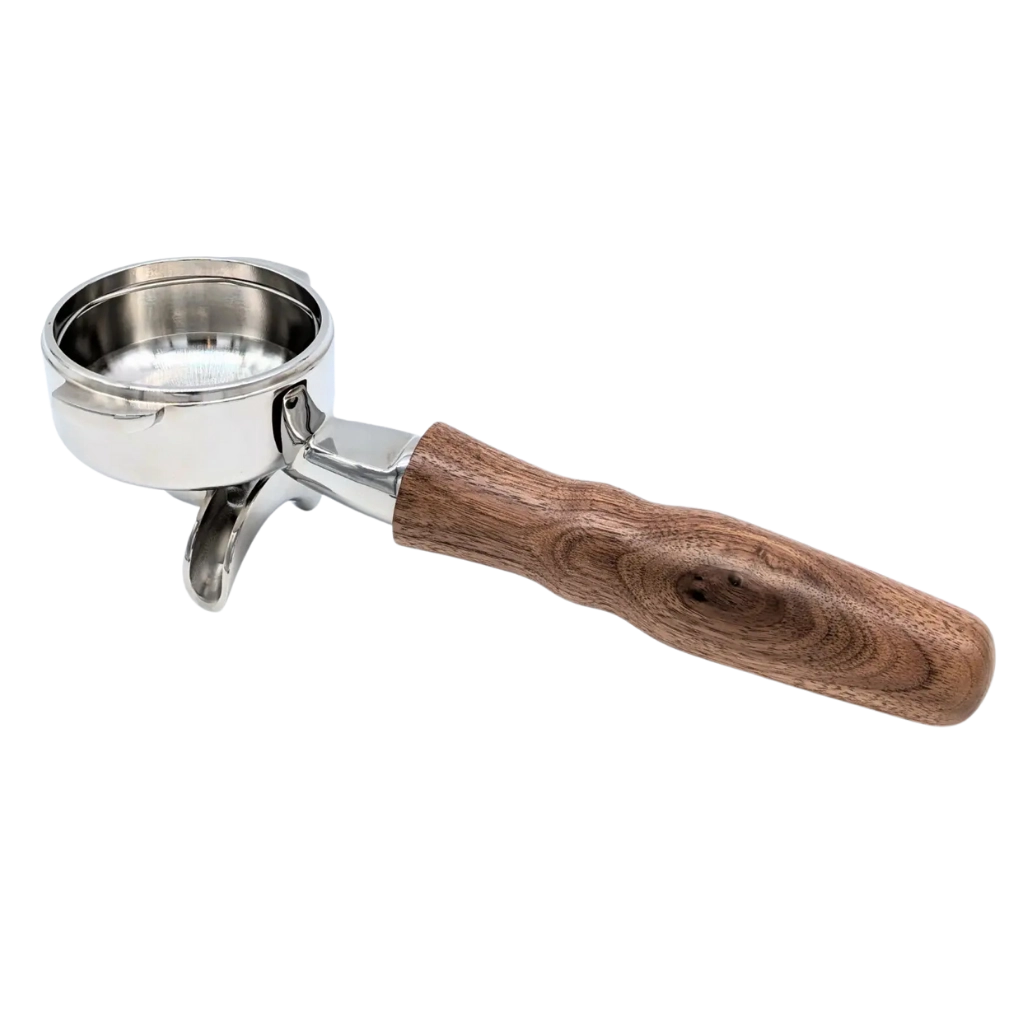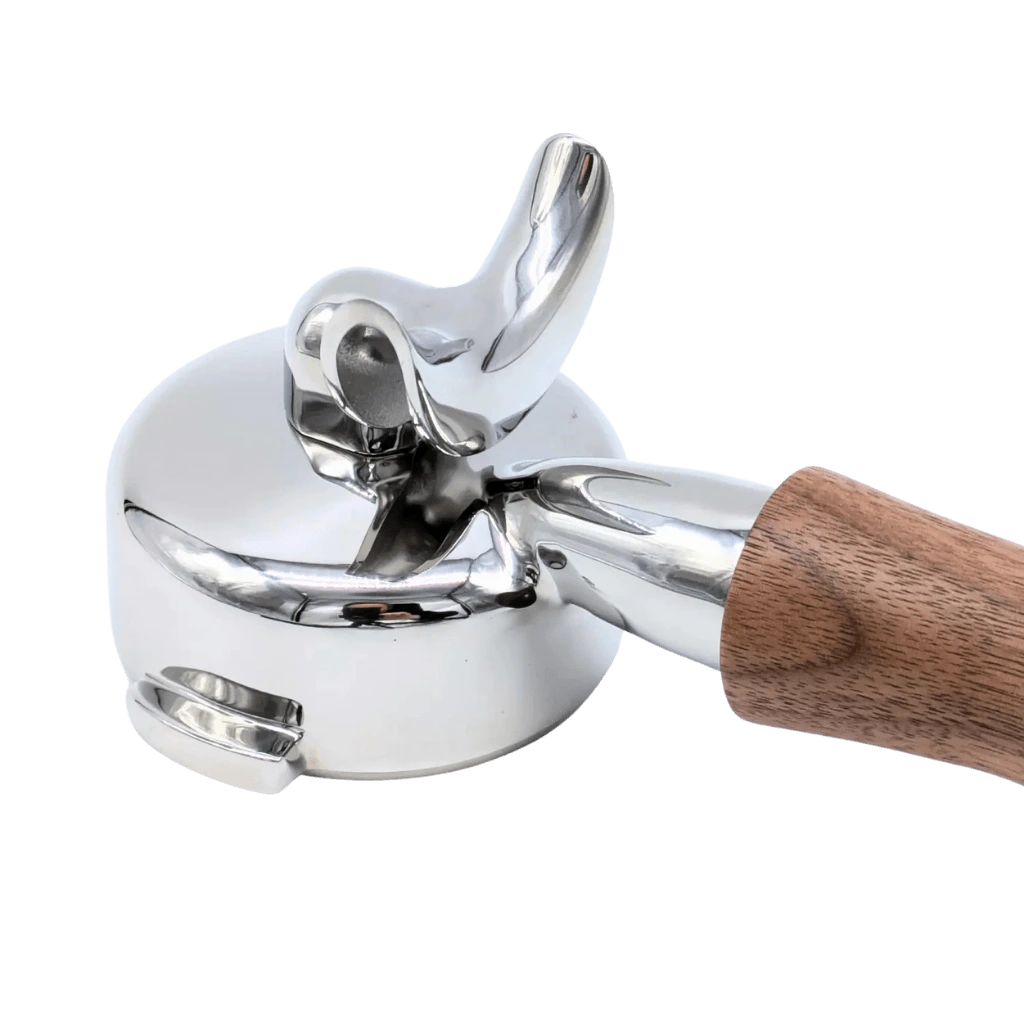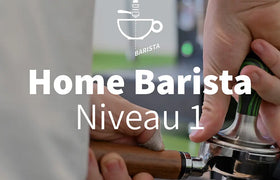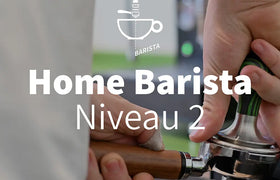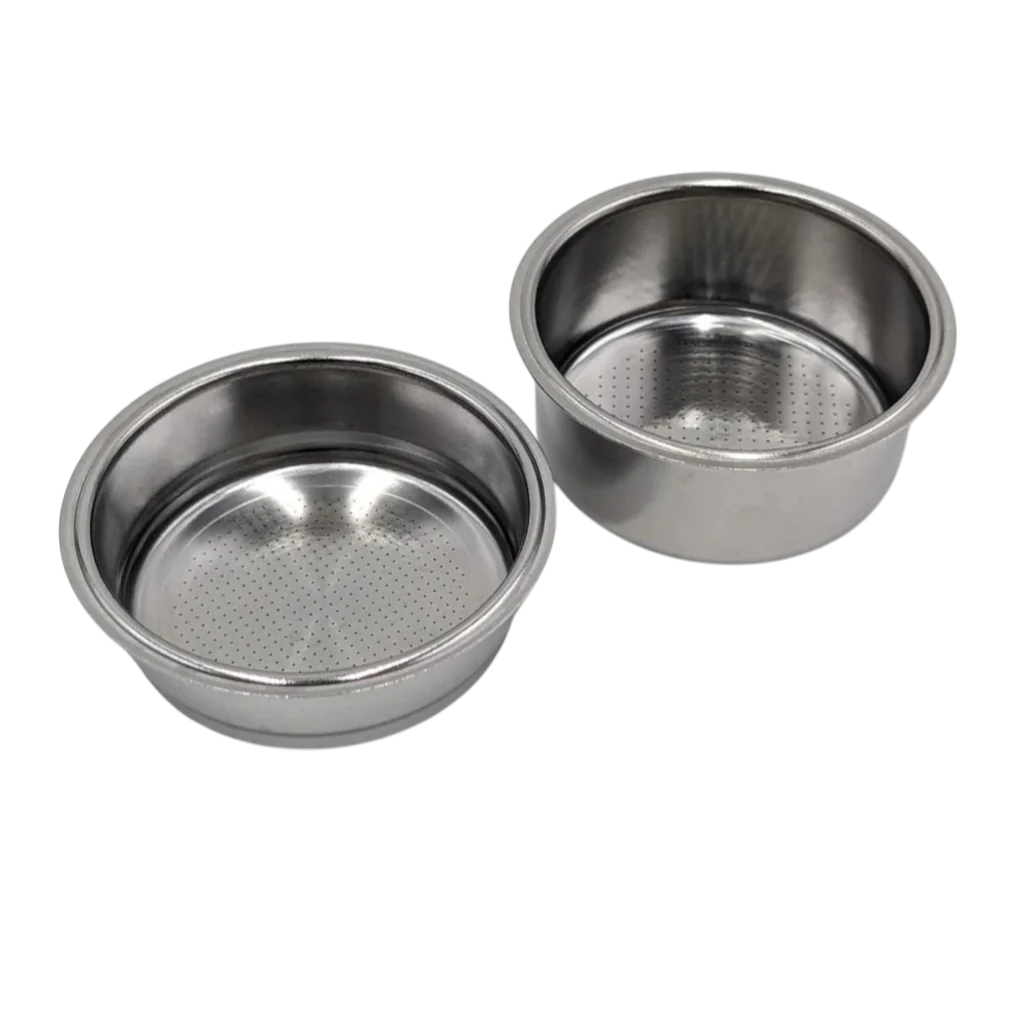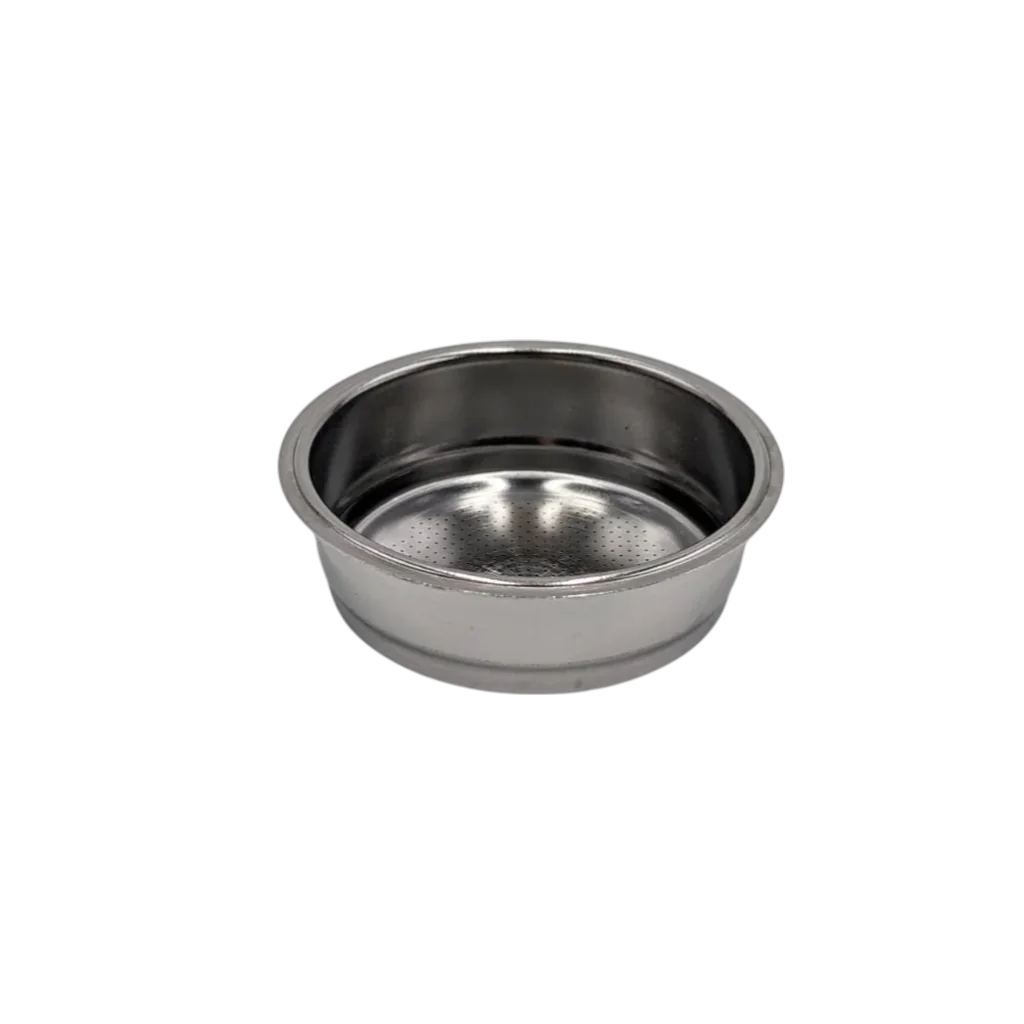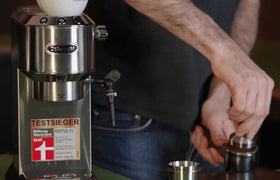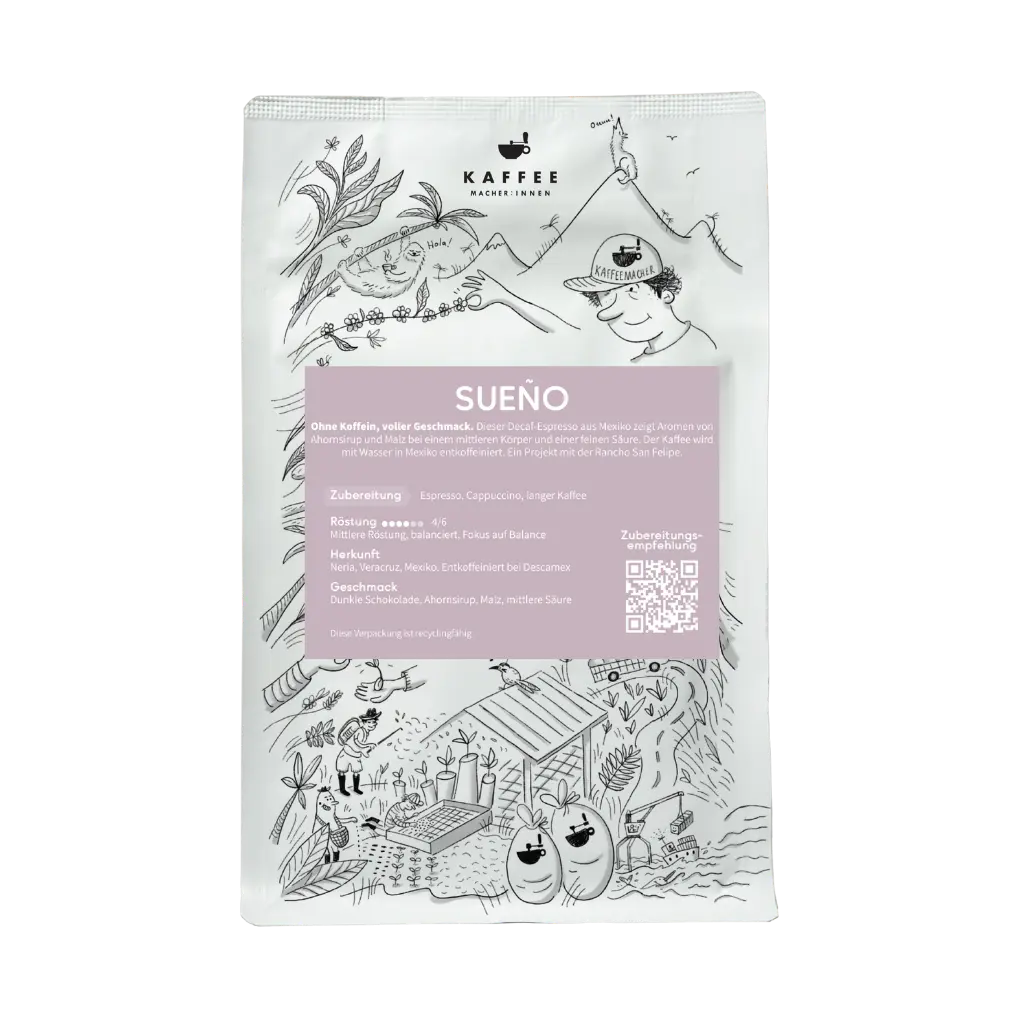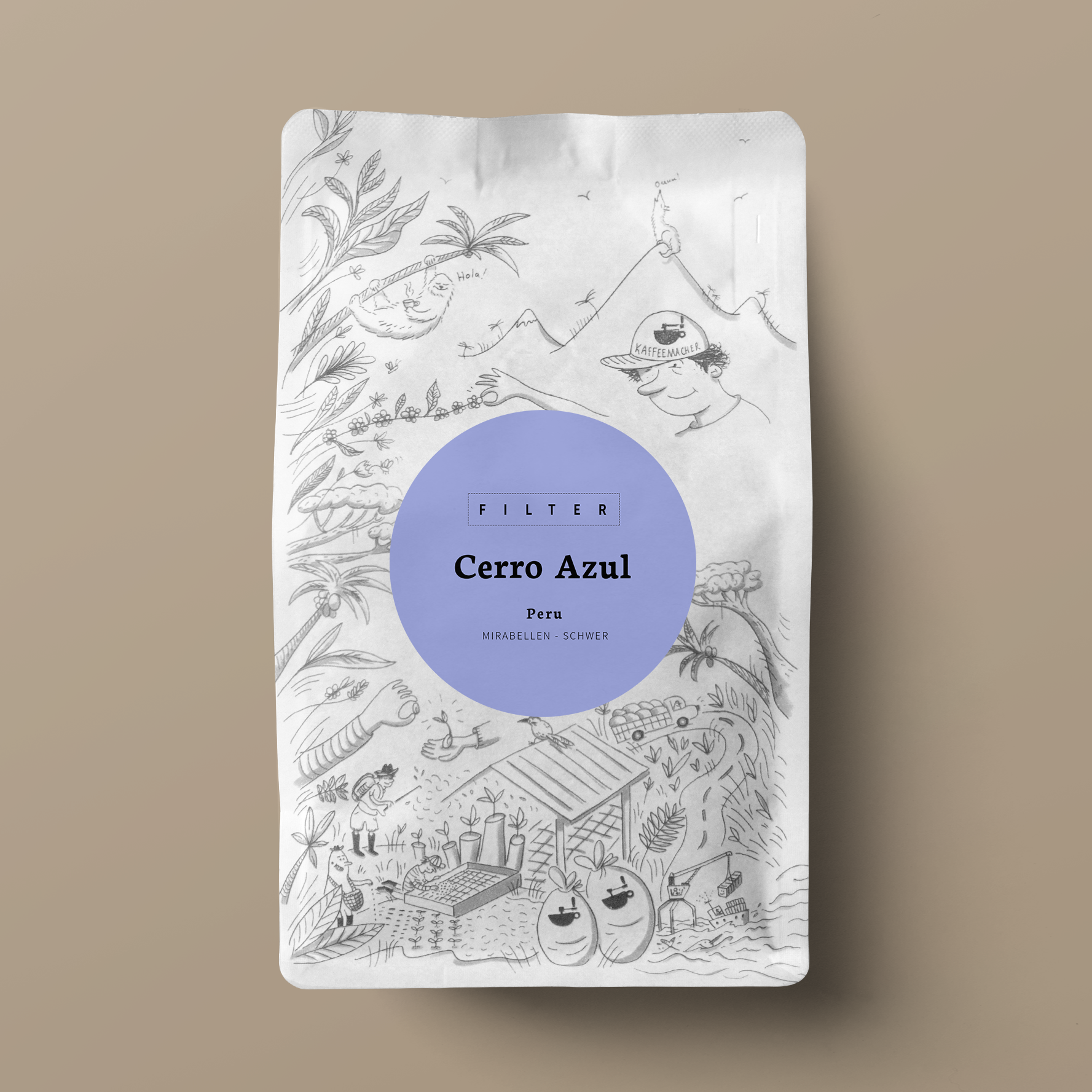
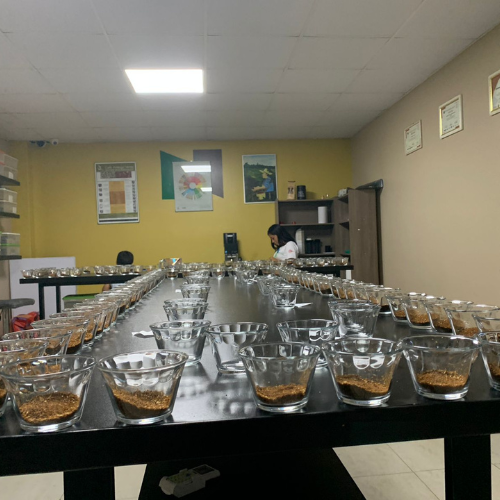
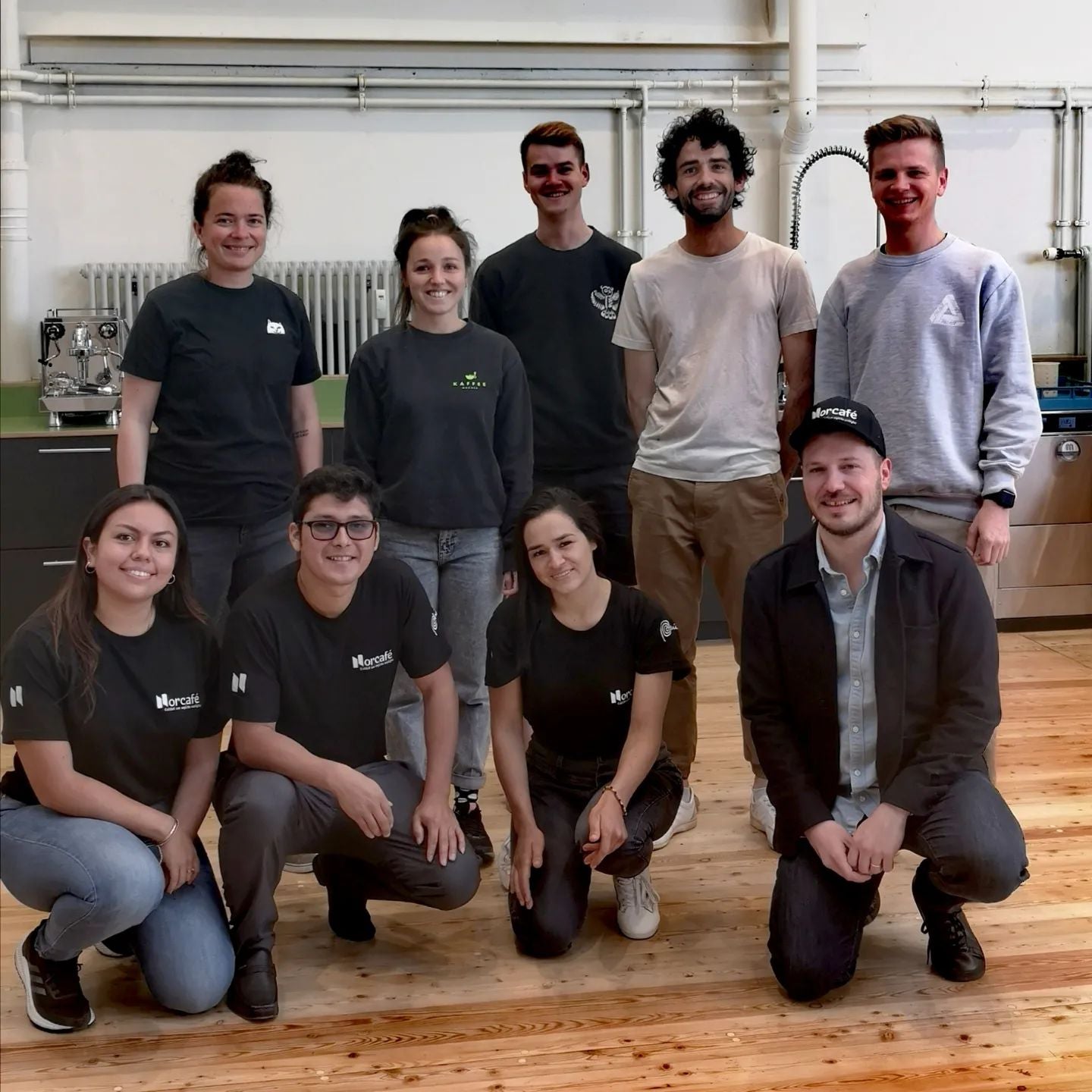
Cerro Azul, filter coffee
Cerro Azul - filter coffee from Peru
Unfortunately, this coffee has been consumed, but we plan to have it back with the next harvest.
We only send our filter coffees in small batches from our Basel roastery to Germany in order to deliver the freshest coffee possible to you. So it can happen that a filter coffee is "sold out" . The fresh delivery always arrives at the beginning of the week at the latest and can then be ordered again .
Ten families from the Norcafe cooperative created this farm blend, which not only impressed us with its taste, but also with its approach. For us, the focus of this coffee is on the heavy body. The coffee tastes of mirabelle plums, with a chocolatey base note, a clear, mild acidity and a velvety texture.
Cerro Azul - Coffee information, organically produced
Roasted for: all common filter methods
Origin: Lonya Grande, Amazonas, Peru
Producers: 10 families, Norcafe cooperative
Varieties: Bourbon, Caturra, Catuaí, Típica, Villa Sarchí
Post-harvest process: Reposa in cherries for 12h, pulped, washed
Further information: arrived at the roastery: May 2022.
Tell me more about Cerro Azul filter coffee
Cerro Azul is the second microlot we have purchased through the young Norcafe cooperative in Jaén, Peru. It is the third year that we have been working with Norcafe. We started with a cooperative blend for a gastro blend, then El Colibrí (espresso) was added, and now this filter coffee. It is a microlot that was organically produced by 10 selected families in the Lonya Grande district, south of Jaén. Sonia, who is responsible for quality at Norcafe, visited the small fincas and implemented the drying methods together with the families. In spring 2022, Sonia visited us in Basel and we were able to taste the coffee together. "Yes, exactly, that's how it should taste," she said.
Why does the coffee taste the way it tastes?
The coffee cherries were sorted again by hand before they were left to rest in the cherry for 12 hours - a reposa . According to Sonia, this short break was mainly to make the coffee more uniform before pulping, as it was a blend of 10 different families. After pulping, the coffee was washed, fermented under water and immediately dried. In this respect, it is a classic processing method that is anchored in the region. The high degree of ripeness of the cherries gives it a soft texture and basic sweetness. You don't notice any fermentation notes here, just the taste that comes from these farms and the handcrafting. A slightly fruity coffee that reminds us of stone fruit such as mirabelle plums. The focus of this coffee is on the heavy body, which is present even with a light roast.
Why did we buy this coffee?
Firstly, because we wanted to make a filter coffee with a coffee from Norcafe. And then because the coffee proves how precise craftsmanship results in delicious coffee. A lot of things really have to be right for different producers in different locations to work in exactly the same way, ferment and dry individually , and for the coffee to taste homogeneous in the end. The coffee is proof of work that only works when everyone involved is well informed and trained and works precisely.
How do we roast this coffee?
We roast the coffee as a 15kg batch on our 30kg Giesen roaster. We roast the coffee for 8:15 minutes with a development time of 52 seconds, or 10.5%. It is fun to roast the coffee because it responds very well to the commands - more or less gas supply. We let the coffee rattle into the first crack with only a little braking before we take it out at around 2/3 of the cracking stage, finish cracking it in the cooling drum and let it cool.
brewing recipe
We brew the coffee in a ratio of 1:16 (e.g. 18g dosage, 290g water) at 94° and a slightly finer grind than usual for V60. We do the blooming with 50g for 40 seconds, then up to 170g, at 1:10 top up to 300g so that the water is poured in at 1:40. We aim for a brewing time of 2:50 minutes for the V60, which further emphasizes the heavy body. If you like body-focused filter coffee, you can do it right with the Aeropress. For more delicate aromas, we recommend the V60 or Kalita.

Guaranteed origin
We know exactly where our coffee comes from and when and where it was roasted.
Free shipping in Germany from 75€
Personal advice
We are here to help you with any questions or problems.
Fast shipping
Delivery from Germany or Switzerland



